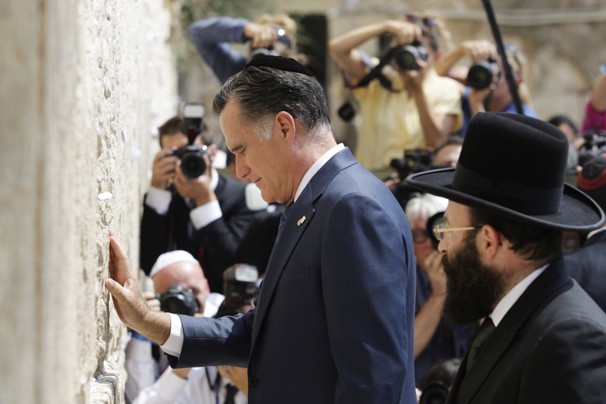
Romney’s Foreign Policy: Careless rhetoric matters
A few days ago, Alexander Ewing posted a “firm riposte” to my blog which criticised Romney and his entourage for their neo-con leanings. Within it he argues that those who claim that a Romney Presidency would result in a return of the neo-cons are simply creating “a storm in a teacup”, and that Romney has used the language of the neo-cons only as a means to distance himself from Obama and portray the President as weak on the world stage. In reality, he argues, Presidents of both parties tend to follow broadly similar foreign policies, regardless of their own ideological leanings or party affiliation. In other words, Romney uses tough talk but it’s largely irrelevant since it won’t alter actual …
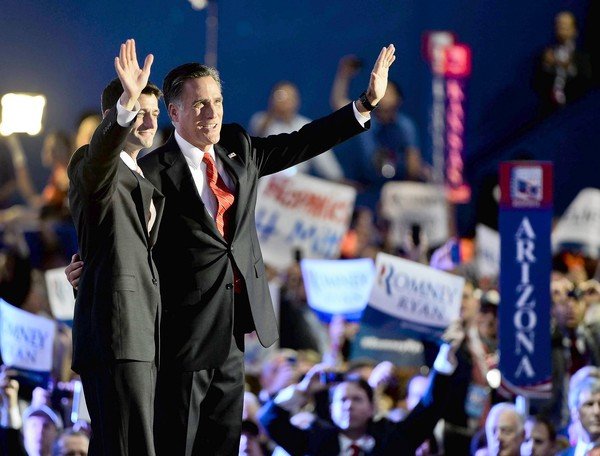
The Return of the Neo-Cons: Why a Romney presidency would be bad for America
This week we were given a first glance at what a Romney presidency might mean for the rest of the world when he and his allies began to spell out what a Romney foreign policy would consist of at the Republican National Convention. The decision to focus upon attacking Obama’s foreign policy record was perhaps unwise given that this is one area in which Obama enjoys relatively broad support and in which Romney has little experience — and given his recent debacles on the international stage, even less credibility. While Obama has not fully lived up to the hopes the international community had for him (demonstrating the folly of awarding peace prizes in advance), he at least still commands the …
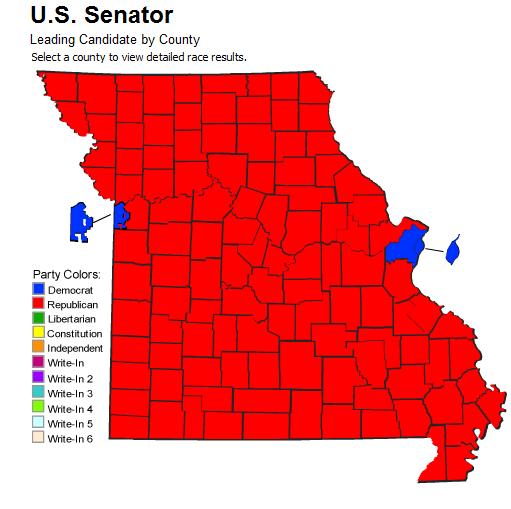
What’s the matter with Missouri?
This is a common question following the row over Congressman Todd Akin’s comment about abortion and rape. In a 2004 book, Thomas Frank, the liberal columnist and author, asked a similar question about Missouri’s western neighbour, Kansas, which has lurched far to the right in recent decades (indeed, its current governor Sam Brownback might well be the most extreme right-wing governor in the union). Yet there is little mystery about Kansas: its rightward shift is part of a broader trend in the Great Plains, which now rivals the South for the status as the heart of the GOP. But Missouri’s rightward shift, which Todd Akin so demonstrated, is perhaps more surprising. Missouri has the makings of a state that could go blue …
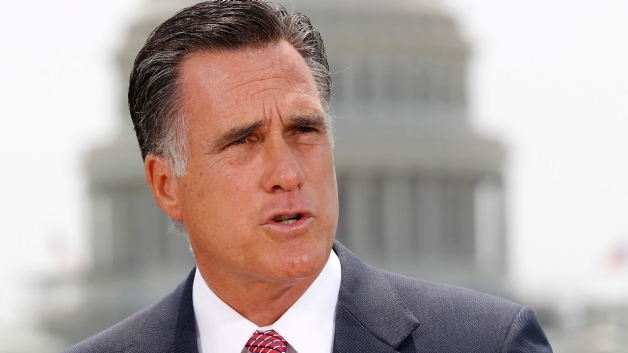
Forward to the Past: The Ideology of Romney’s Republicanism
‘President Obama has said that he wants to transform America. I don’t want to transform America; I want to restore the values of economic freedom, opportunity, and small government that have made this nation the leader it is.’ (4 April 2012, Remarks to the Newspaper Association of America) It is less than a hundred days until the election for the most powerful political office in the world, the President of the United States of America. The November election ‘will be a defining event’. Not said by the usual peddlers of political commentary and punditry, but by the Republican nominee for President, Mitt Romney. The US election of 2008 was monumental and arguably constituted a dramatic turning point in the political history …
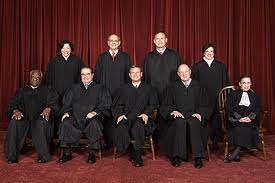
Obama Healthcare: Court vs. Congress
We will be talking about the Supreme Court’s decision to uphold the mandate as a tax for a long time. I’ve posted my initial two cents on The Monkey Cage, a US political science blog. But let me summarise a bit here. One of the many interesting sub-plots is what the Court’s actions this week imply for the role the Court plays relative to Congress. Roberts clearly voted against his conservative co-ideologues on the mandate. On the Medicaid expansion, we also see justices voting against their presumed co-ideologues in Congress. Breyer, Kagan would be considered pretty reliable liberal votes on policy question of expanding Medicaid. And yet they voted to limit congressional power to encourage/coerce states to implement this expansion. Another …
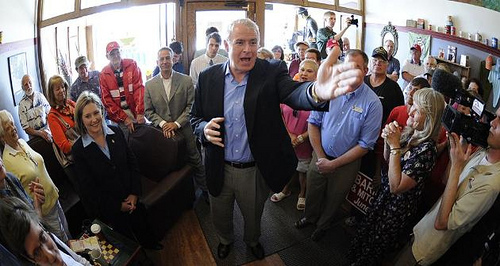
Campaign Lessons from the Wisconsin Recall Election—it’s not about television, field operations, or the internet, but about all of them
So June 5, Wisconsin’s Republican Governor Scott Walker beat his Democratic challenger Tom Barrett 53-46 in a expensive, hard-fought, and divisive recall election that gives a taste of what the fall general election will have to offer in swing states around the United States. Here are three observations about money and where it comes from, about television versus field, and about the role of the internet that will also apply as Obama and Romney face each other— First, this was a very expensive election and both candidate campaigns were heavily reliant on various forms of outside allies. According to the Wisconsin Democracy Project and the Center for Public Integrity, the Walker campaign spent $29.3 million and outside pro-Republican groups a …

Remembering Peter David
Last week, whilst teaching a course at Colorado College, I wrote a piece for The Economist about a bill to allow civil unions in the state, which was combined with reporting on Obama’s announcement in support of gay marriage and that passage of North Carolina’s constitutional amendment banning gay marriage. This larger story – Colorado is rather small beer, to be fair – meant that my piece went from 500 words to about 150. Given that I am an infrequent freelancer, usually I’d be gutted, but this meant a few lines in an article written for the most part by Peter David, the Washington bureau chief and Lexington columnist, who I just found out died tragically in a car crash …

We are going to win this thing the (new) old-fashioned way
May 5th, President Obama gave (basically identical) speeches in the swing states of Ohio and Virginia, officially providing the “campaign kickoff” for his re-election effort. The opening statement is interesting for how it frames the campaign, as well as for the substantial ask– I want to thank so many of our Neighborhood Team Leaders for being here today. You guys will be the backbone of this campaign. And I want the rest of you to join a team or become a leader yourself, because we are going to win this thing the old-fashioned way — door by door, block by block, neighborhood by neighborhood. This campaign is about people (that’s part of the framing). He wants you to join the …









